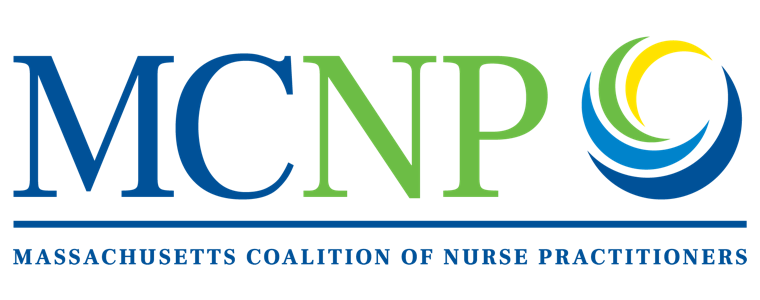MA NPs Gather for MCNP Health Policy Breakfast
Posted on 4/5/2017 in MCNP News
BOSTON - April 5, 2017- The Massachusetts Coalition of Nurse Practitioners (MCNP) today hosted its annual Health Policy Breakfast, inviting legislators and nurse practitioners from across the state to discuss current health care challenges facing the Commonwealth and the goals of our bill, H.2451/S. 1257, An Act to Contain Health Care Costs and Improve Access to Value Based Nurse Practitioner Care as Recommended by the IOM and FTC.
More than 130 nurse practitioners and nurse practitioner students were joined by co-sponsors of the bill, Senator Marc Pacheco, Representative Paul Donato, Representative Kay Kahn and Representative Pat Haddad. Other legislators and legislative staff were also in attendance.
H. 2351/S. 1257 will allow nurse practitioners in Massachusetts to practice to the full extent of their education and training and will update the MA Nurse Practice Act by removing antiquated and unnecessarily restrictive licensing requirements. Despite leading the nation’s healthcare reform initiatives, Massachusetts is the only New England state that has yet to remove such restrictive requirements.
“Nurses are the most trusted profession in the United States,” said Senator Marc Pacheco. “Nurse practitioners provide their patients with exceptional care and are often treating the most vulnerable members of society. There is no reason that we should not be better utilizing their qualifications and expertise to serve the public.”
“Nurse practitioners have the education, knowledge, and experience necessary to deliver comprehensive specialized care to patients,” said Representative Paul Donato. Increased reliance on nurse practitioners can be a more cost-effective approach to healthcare. As the cost of care continues to rise – for both the Commonwealth and patients – shifting to a Full Practice Authority model would better position the state and employers to leverage the NP workforce for cost-savings. The average cost of a visit with a nurse practitioner can be between 20 and 35 percent lower than the average cost of an office-based visit with a physician. By removing unnecessary barriers, Donato recognizes, "it will permit them do what they are licensed and trained to do, creating patient access to care, help lower their health care costs, and importantly, provide cost savings for Massachusetts.”
Massachusetts boasts the greatest number of physicians per capita and spends the most dollars on care and yet continues to have major access problems. According to MCNP President, Stephanie Ahmed, DNP, FNP-BC, “At 109 days, a recent Merritt Hawkins study reports that Boston has the longest wait times in the country, for those patients seeking new appointments with a family medicine provider. Creating cost-effective access to care for the residents of the Commonwealth means we can’t continue to do “business as usual. Nurse Practitioners must be positioned to work to the full extent of their education and training."
Additional highlights of the event included the presentation of the American Association of Nurse Practitioners State Advocacy Award to Colleen LaBelle MSN, RN-BC, CARN who has been in a leader in the treatment of substance use disorders in Massachusetts and is the Program Director of State Office-Based Opioid Treatment with Buprenorphine.
Julianne Nemes-Walsh, MSN, PNP-BC, presented a $10,000 gift from the Massachusetts Chapter of NAPNAP to support the legislative efforts of the MCNP.
The event culminated with visits to the State House where attendees visited the offices of their legislators to share information about H. 2351/S. 1257.
The MCNP thanks all of the legislators and legislative staff members who participated in the program and the MCNP members and NP students who attended the event. Special thanks to the volunteer members of the MCNP Legislative and Political Action Committees who helped with planning and led groups to the State House.
